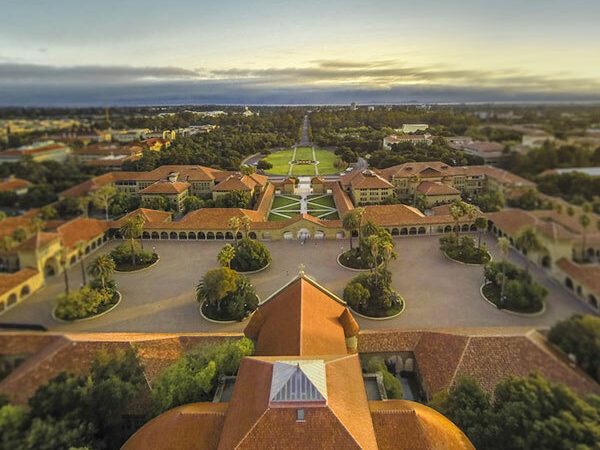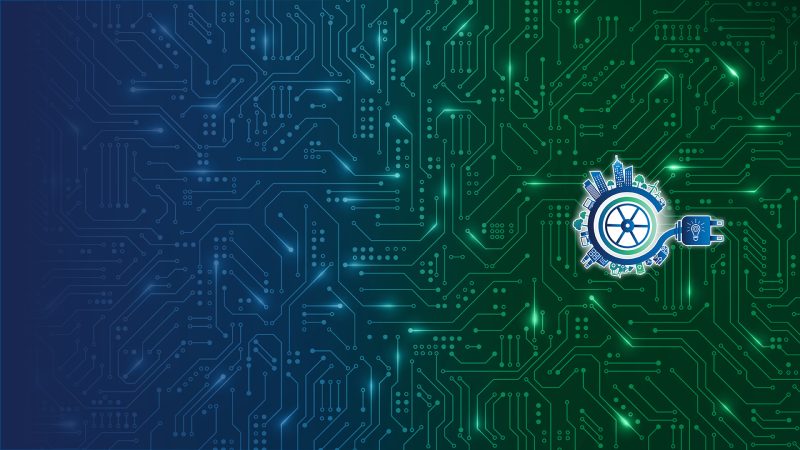
Andrew A Chien contributed to a panel at the UN Climate Change Conference (COP30)
Andrew A. Chien contributed to a panel titled “Digital Technology as Driver of the Climate and Sustainability Transition” at the UN Climate Change Conference (COP30) in Belém, Brazil on November 13th, 2025.

Andrew A Chien interviewed on topics of datacenters and AI, power grid, environmental damage and community benefits
Andrew A Chien appeared in several TV news spots / interviews between June 24th and July 1st to discuss datacenters and AI, power grid, environmental damage and community benefits.

Prashant Shenoy appears on WHMP podcast to discuss AI
Prashant Shenoy appears on a podcast produced by WHMP 101.5 Newstalk to discuss “Artificial Intelligence at Work.”

CoDec Faculty at UMass organize 2025 Turing Summer Program for Local High School Students
CoDec faculty members at UMass Amherst are organizing a three-week educational summer program for high school students in Western Massachusetts.

Line Roald quoted in IEEE Spectrum on $500B Stargate Project for AI
Line Roald is quoted in an article titled “Experts Weigh in on $500B Stargate Project for AI: The Trump-announced initiative to build data centers will have big impacts” in IEEE Spectrum.

Andrew A Chien gives a talk at the Stanford Energy Transition Seminar
Andrew A Chien gave a talk titled “Can Generative AI get the power it demands? And without reversing Grid Decarbonization?” at the Stanford Energy Transition Seminar.

Priya Donti and Andrew A Chien quoted in ScienceNews on environmental impacts of generative AI
Priya Donti and Andrew A Chien are quoted in an article titled “Generative AI is an energy hog. Is the tech worth the environmental cost?” in ScienceNews.

Andrew A Chien quoted in Audubon Magazine on AI boom and carbon implications
Andrew A Chien is quoted in an article titled “How the AI Boom Threatens to Short-Circuit Climate Action” in Audubon Magazine.

Andrew A Chien gives a talk at the Global Corporate Venturing bi-annual meeting
Andrew A Chien gave a talk titled “How to get the Huge Power needed for GenAI, AND reduce the Negative Environmental Impacts” at the Global Corporate Ventures bi-annual meeting in Menlo Park, CA.

NSF CoDec at National Academies Workshop on Data Center Emissions
Andrew A Chien, Line Roald, and Prashant Shenoy participated in the Implications of Artificial Intelligence-Related Data Center Electricity Use and Emissions Workshop hosted by the National Academies Roundtable on Artificial Intelligence and Climate Change.

NSF CoDec at LBNL Data Center Load Flexibility Workshop
Andrew A Chien participated in the Data Center Load Flexibility Workshop at Lawrence Berkeley National Laboratory.

Andrew A Chien gives a keynote at the Green AI Summit
Andrew A Chien gave a keynote talk entitled “How AI Can Get the Power It Needs” at the Green AI Summit at Harvard.

Andrew A Chien gives a keynote at the Yotta 2024 conference
Andrew A Chien gave a keynote talk entitled “Dynamic Range and Cooperation: How AI Datacenters get the Ample, Cheap, Green Power?” at the Yotta 2024 conference in Las Vegas, Nevada.

Andrew A Chien quoted in Sierra Club Magazine on Cloud Carbon Footprint
Andrew A Chien is quoted in an article titled “The Carbon Footprint of Amazon, Google, and Facebook Is Growing” in the Sierra Club Magazine.

Andrew A Chien gives a keynote at the NSF Workshop on A Holistic AI Computing Framework
Andrew A Chien gave a keynote talk entitled “Reduce Datacenter Operational Carbon and leverage that Efficiency to reduce the Water-use and Embodied Carbon”.

Andrew A Chien appears on WBEZ to discuss how cloud computing causes environmental harm
Andrew A Chien appeared on the WBEZ (Chicago PBS) program Reset with Sasha Ann Simons, as part of a panel entitled “How Cloud Computing Causes Environmental Harm”.

NSF CoDec at HotCarbon ’24
Varsha Rao presented “Understanding the Operational Carbon Footprint of Storage Reliability and Management”, and Walid Hanafy presented “Data-driven Algorithm Selection for Carbon-Aware Scheduling” at the HotCarbon Workshop on Sustainable Computer Systems.

NSF announces funding for CoDec, a 2024 Expeditions in Computing awardee
NSF invests $36M in computing projects that promise to maximize performance, reduce energy demands
